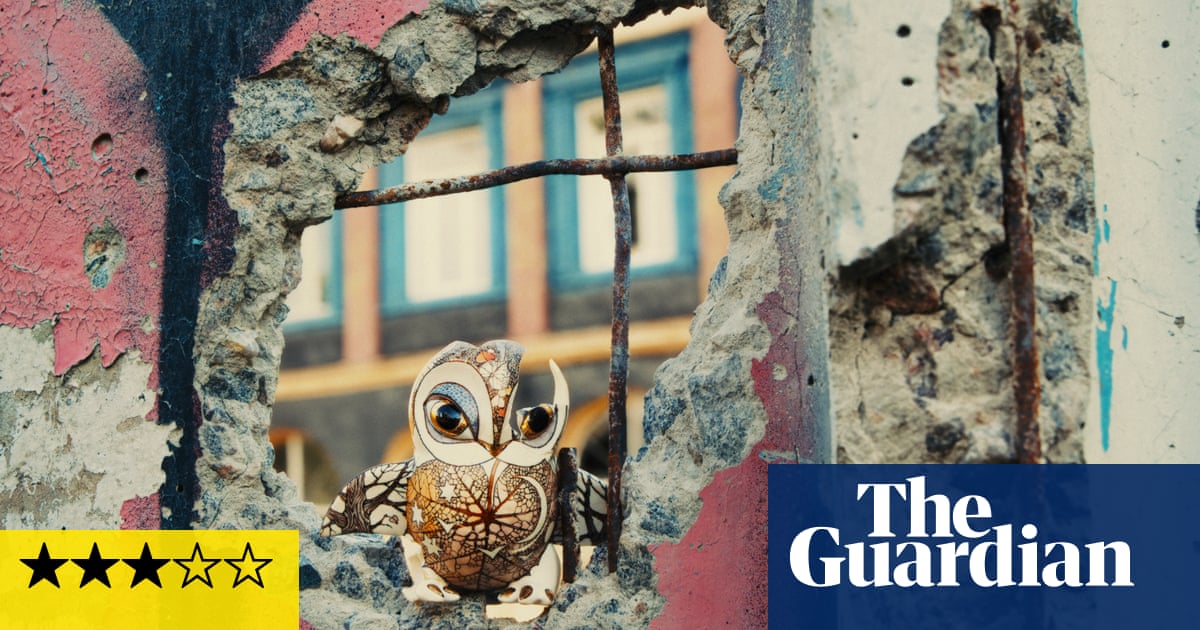Compared with the award-winning The Earth Is As Blue As an Orange from 2020, which charted a Ukrainian family’s attempt to make a film during the Russian incursion into the Donbas, this equally art-minded dispatch inches closer to the frontline. Following, and largely shot by, Kharkiv civilian soldiers Slava Leontyev and Andrey Stefanov, a ceramicist and a painter respectively, this glowingly photographed chronicle is another staunch defence of creativity in the face of aggression. But it throws up a few uncomfortable caveats.
As well as being an elite marksman, Slava likes kiln-firing Pokémon-esque porcelain critters such as snails and dragons. Decorated by his wife Anya with intricate faerie-scapes reminiscent of Stanley Spencer (charmingly animated for the film), they are intended to keep beauty alive amid devastation. And the material itself, porcelain, symbolises Ukrainian resistance: easy to damage, hard to destroy. Meanwhile, Andrey – forced to send his wife and two daughters to Lithuania – has stopped painting. Still happy to get behind a camera, though, he too recognises that Ukrainian culture is precisely what Putin aims to stamp out.
These modern warrior-creatives have to embrace pragmatism. “There is not much to like about weapons,” says Slava. “But we have to understand that they give us the ability to resist brutal aggression, and the advantage of power.” But similarly doubled-edged, art also needs careful handling. Many of their drone-borne compositions are entrancing: such as the shot of a Russian trench scored through arable terrain that looks like an abstract expressionist painting. Maybe too beautiful, as emphasised when we see Ukrainian bombs tumble down on the fortifications shortly afterwards. The film gets uneasily close at these moments to beautifying the art of war the way Sun Tzu meant it.
Though Porcelain War isn’t propaganda, its partisan zeal does permit it to drift into danger zones it doesn’t seem completely aware of. In the most part, though, it’s guided by love for the country’s sylvan landscapes and everything that flows out of them; a sombre, steadfast argument for art’s life-giving properties.
Porcelain War is in cinemas from 6 December.
∎
